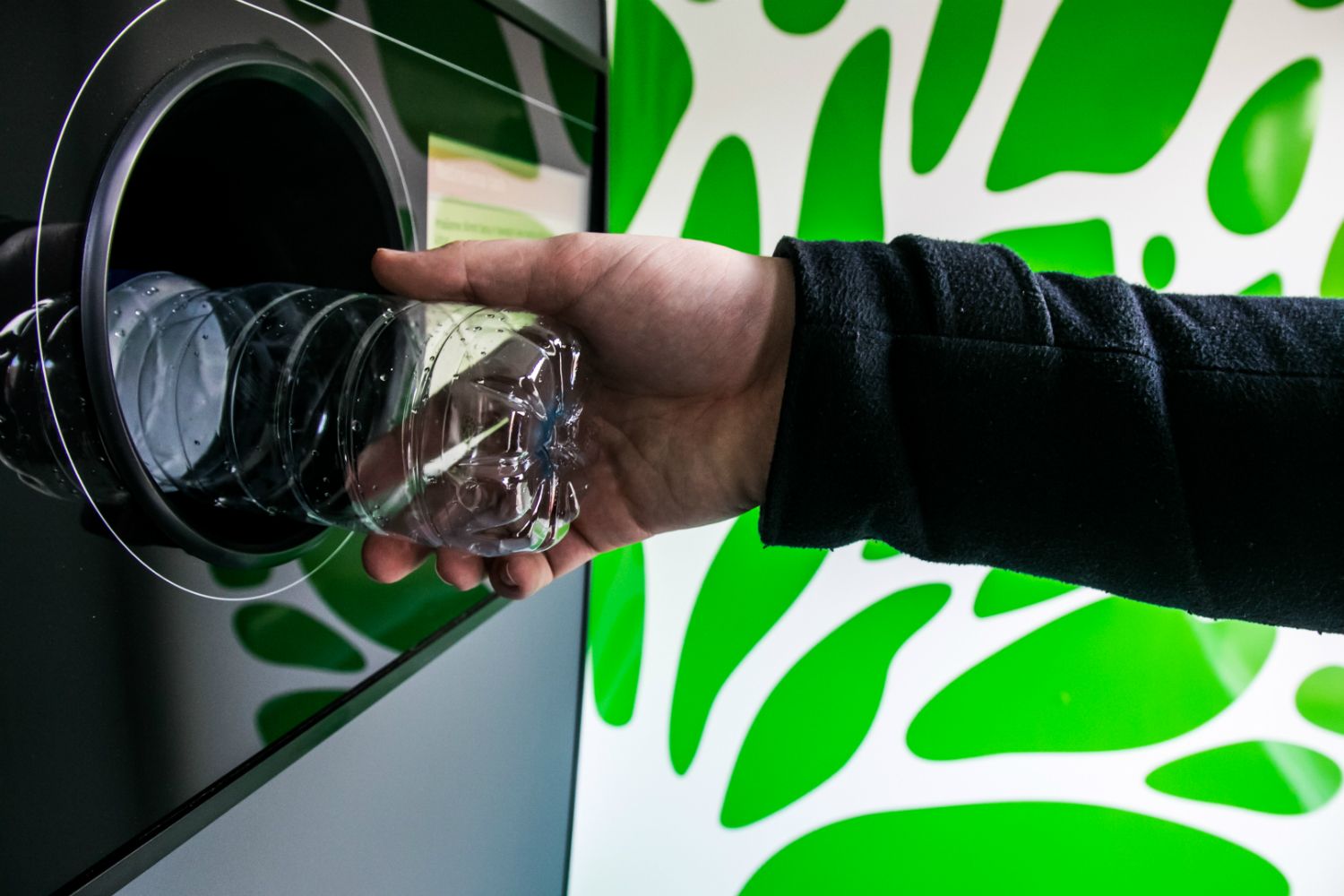In September Scotland began working on the details of how a plastic bottle deposit scheme will work.
‘Reverse vending’ is one of the options being talked about; this is where empty bottles are fed into a vending machine and money pops out! These reverse vending machines have been in operation in Scandinavian countries for many years, with recycling rates there being double those here in the UK.
Despite the various ways of recycling being introduced here over the years, from bottle banks to household collections, less than half of our household waste is being recycled. At the Conservative Party Conference last month, it was said that only 57% of plastic bottles sold in the UK in 2016 were collected for recycling.
Change is needed…
The reverse vending machine is a proven method in other countries. The principle of a deposit-return scheme is to incentivise the customer to return empty bottles. Yes, the bottle will cost a little extra to buy, but we adapt – you only have to look at the success of the plastic bag tax to see this.
John McDonald from Excel Vending demonstrated the reverse vending machine to Kevin Keane of BBC Scotland. ‘It has a 360 degree recognition system so it will pick up the barcode, the material of the bottle and it will pick up the size and dimensions’, he said.
Recycling with the plastic bottle deposit scheme will help to increase the availability of recycled material, as reverse vending machines give greater control of the plastic, preventing contamination and reducing the amount of plastic destined for landfill.
Coca-Cola made a commitment that by 2020 they will be using 50% recycled material in their bottles. To meet this goal more recycled plastic is needed. A UK wide plastic bottle deposit scheme will be a positive step towards more recyclable plastic and a cleaner environment.
Nick Brown, head of sustainability for Coca-Cola in Europe, spoke on the reverse vending machines. ‘You would just put the bottle in. The bottle is crushed, compacted and then dropped into a bag at the bottom and this will allow it to be collected. In such a scheme the empty bottles become a form of currency.’
There will always be objections and concerns with a scheme as big as this.
The retail sector is split in their feelings on the plastic bottle deposit scheme and reverse vending machines, with some saying it is unnecessary and expensive. However, the positives of the proposed scheme are plain to see:-
- The reverse vending machine has no contamination; it’s clean and simple to operate, and takes up very little space in retail premises.
- The scheme will help keep litter off the streets and reduce landfill.
- We need to protect our environment and marine life from the damage that plastic can inflict, and this scheme can help dramatically.
The stream of disposable plastic bottles flowing into our oceans has been growing alarmingly. Greenpeace Oceans campaigner Elena Polisano said ‘We urgently need solutions, and we think a bottle return scheme like those being looked at by Michael Gove, and by the Scottish and Welsh devolved governments, is probably the best way to raise collection rates and turn that stream into a loop.’
There could be concern by local councils that a scheme like this will result in loss of income from selling bottles collected from households to recycling companies. A recent report from Eunomia found that a plastic bottle deposit scheme could actively save councils up to £35m a year from reduced littering and landfill charges.
Did you know that in Denmark, which has a deposit scheme, more than 90% of bottles are returned?
While there will always be a percentage of people who will recycle anyway, it’s the rest of the people we need to encourage to recycle. The plastic bottle deposit scheme has the potential to do this.
Managing director of Swedish firm RVM Systems, Niklas Engström said: “Once there is a value to the beverage container, people would like to get that deposit money back.
With an estimated 15000 machines in operation in Scandinavia, we could soon see plastic bottle deposits implemented in stores across the UK.


